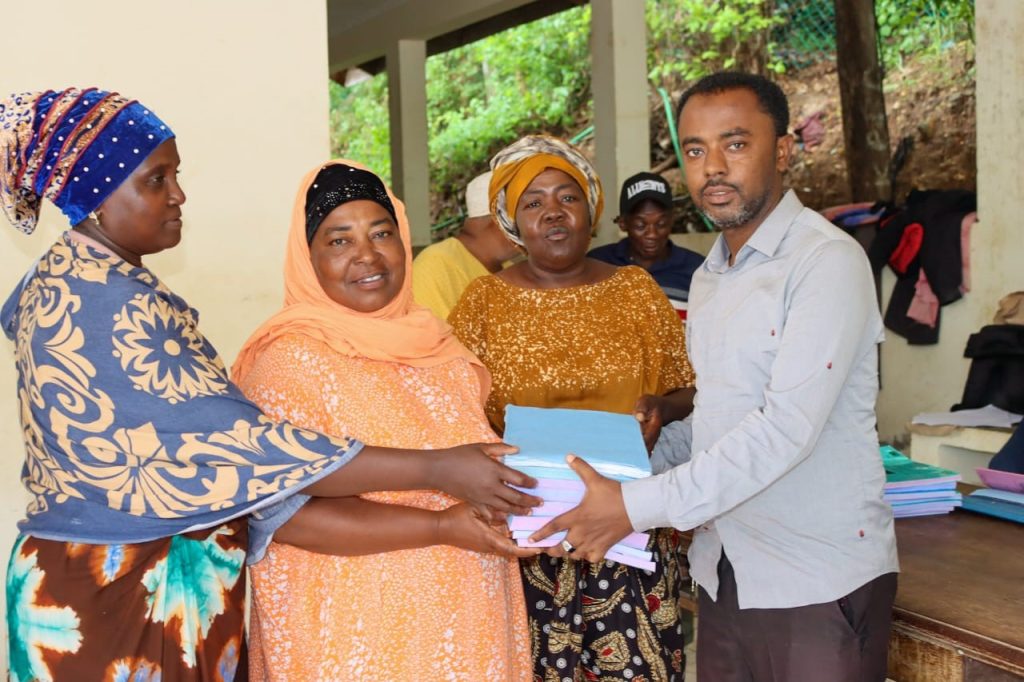
Mama Rukia Pamba has made it her mission to improve lives in her community. A mother of eight and fish trader, Rukia dropped out of school after basic education and got married. But in 2018, at years of 46 age, she defied the odds and she joined high school in her home County of Kilifi.
So committed was she that she managed to balance family responsibilities, her business, and classes to complete Form 4 in 2021.
“I returned to school because felt that by getting a better education, I would play a bigger role in serving my community,” says Rukia.
Rukia wears many hats. She singles out her role as a community health volunteer and leader of the 30-member Pweza Women’s Group. The group is one of the 142 beneficiaries of the first round of grants by the KEMFSED project for community livelihoods, environmental and social projects worth 320 million shillings in Kilifi, Mombasa, Kwale, Tana River, and Lamu counties.
Pweza Women’s Group, which is affiliated with Kilifi Central Beach Management Unit (BMU), won a grant worth 2.8 million. They will use to buy a boat and gear to enable them to venture into deep sea fishing, given the declining fish stocks in the near-shore.
“We started the group in 2019 after realizing that women involved in the fish trade suffered a lot during kusi (low season) when fish is not readily available,” says Rukia. “The aim of the group was to contribute money as a good to buy our own fishing boat.”
A year after it was formed, the group approached the local Member of the County Assembly who enabled them to acquire a small boat. They employed three fishermen and started getting their fish directly from the ocean. This reduced reliance on middlemen, increasing their profit margins.
With the funds from KEMFSED, the group will hope to employ more fishermen and increase their catch.
In early April 2023, Rukia and other group officials took part in training on basic bookkeeping, how to cost-attentively procure goods and services as well as marketing. KEMFSED is offering this essential training to all beneficiary groups as a final stage before the funds are transferred to their bank accounts.
When she went back to school as an adult student, little did Mama Rukia know the education she received would be critical in helping her to understand the procedures for managing the KEMFSED grant.
“The training to be very useful for us because we now understand bookkeeping and will be able to track how we use money … they showed us on how to calculate our profits and also market our fish,” says Rukia.”
She adds: “We also learned that we need to register the people who come to repair our boats, assess them, and pick the best.”
The financial and management training is part of the package that KEMFSED and the counties offer to build the capacity of grassroots groups participating in the project. Group officials have also been trained in leadership and how to redress grievances and manage conflicts to ensure their projects run smoothly.
Each county has assigned teams of technical officers to the beneficiary groups to provide continuous support them to enable them to manage their projects, keep accurate records, and submit reports required for monitoring and audits. Field assistants have also been deployed to mentor the groups.
Read related stories:
- President launches KEMFSED grants for five counties
- Capacity building to strengthen common interest groups
- Grievance redress mechanism gives communities a voice
Find the photos of training activities on Flickr
